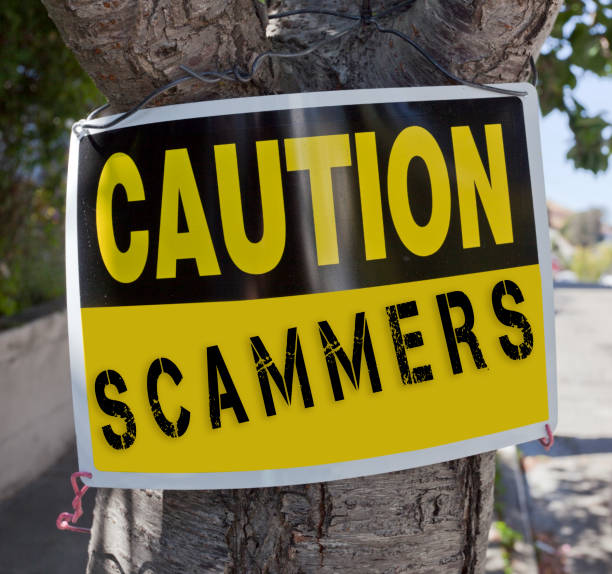We Have To Protect Our Finances
As the population of elderly individuals grows, so does the need for hospice care. However, with the rise in the senior population comes an increase in the number of scam artists looking to take advantage of those who may be vulnerable. As a result, it is essential that family members and caregivers understand how to protect their loved ones from scams.
Scammers Aren’t Going Away

With the rise of new technology and increased access to personal information, scammers have found ever more innovative ways to hack into people’s finances. From phishing scams to computer viruses, these criminals are always looking for weaknesses in the system that can be exploited.
One type of scam involves creating fake websites or emails which appear to be legitimate sites or services. The scammers use these fake sites as a way to gain access to sensitive information such as bank account numbers and passwords. They then use this information to transfer money from the victim’s accounts into their own.
Another common tactic used by scammers is called “spoofing”, where they create false messages designed to look like they’re coming from a trusted source. The messages often ask the recipient to verify their identity and provide financial information, which the scammers can then use to access accounts or steal funds.
Scammers also use social engineering techniques such as “vishing” (voice phishing) and “smishing” (text-based phishing). With fishing, they call victims pretending to be representatives of banks or other legitimate organizations, while with smishing they send text messages asking people to click on malicious links. Both tactics are designed to convince people to provide personal information that can be used for fraud.
Scamming The Elderly


Research shows elderly and hospice-bound individuals are prime targets for scammers. According to the Federal Bureau of Investigation (FBI), elderly victims account for nearly $3 billion in annual losses due to scams, with elderly women being the most vulnerable demographic. With the elderly often isolated or unable to access physical resources, they are particularly susceptible to scammers’ tactics.
One type of scam commonly used against elderly people is the fake lottery or sweepstakes scam. Scammers will contact elderly people via telephone, email, or mail claiming they have won a large sum of money, but must pay a fee upfront before receiving their winnings. This could include anything from taxes to administrative fees that never actually materialize. The elderly person may be asked for bank account information, Social Security number, or other sensitive data.
Another popular scam is the fake charity scam. Scammers will contact elderly people claiming to be associated with a legitimate charity and ask that they donate money. They may even use the name of an actual charitable organization in order to appear more credible. In some cases, elderly individuals are sent fraudulent donation requests through mail or email with the promise of receiving a tax break in return.
The elderly are also vulnerable to telemarketing scams where scammers make phone calls or send letters asking for donations based on false claims about helping elderly individuals in need or providing access to affordable services such as health care coverage. The elderly person may be told they have already won a large sum of money, or even in some cases that their loved ones need help.
Finally, elderly and hospice-bound individuals are also susceptible to scam artists who promise to repair or update the elderly person’s home. These scammers may claim they can get the elderly person a better deal on repairs than what is traditionally available through local contractors. But these con artists often require large upfront payments for services that are never completed, leaving elderly people out of pocket with no recourse for recovering their losses.
Steps That Can Be Taken
We need to make sure that we are taking the best steps in order to protect ourselves and our loved ones, especially those who are vulnerable being elderly or in hospice care.
1. Monitor bank accounts regularly – Set up a system that allows you to frequently check your loved one’s account activity and transactions. This will enable you to spot any suspicious activity or transactions quickly.
2. Educate yourself on current scams – Staying up-to-date with the types of scams out there is key in helping you recognize them when they occur. Know what tactics scammers use so that you can be wary of potential danger signs.
3. Set up a scam alert – Let your loved one know to immediately report any phone calls or emails that appear to be suspicious.
4. Provide financial and security information education – Educate your hospice patient on the basics of safe money management and how to protect their personal information from criminals.
5. Create a trusted circle of advisors – Identify people who can help with managing finances and make sure they are aware of any possible fraud attempts.
6. Get professional advice – Consult with an attorney or certified public accountant (CPA) prior to making large purchases, investments, or donations in order to ensure that all necessary steps are taken for the protection of assets and funds.
7. Set up online safety measures – Install security software on computers and phones to keep personal information safe, create strong passwords and use two-factor authentication when available.
8. Check credit reports regularly – Reviewing credit reports can help you identify if any fraudulent activity has occurred.
9. Monitor mail for suspicious activity – Be aware of any unusually large amounts of incoming mail or requests for money from unfamiliar sources.
10. Request identity theft protection services – Consider signing up for an identity theft protection service that provides early detection, resolution assistance, and credit monitoring alerts.
How Do You Know If You Have Protection?


Knowing if you have good protection against scammers is essential in today’s world. It’s especially important for elderly individuals and those receiving hospice care since they can be particularly vulnerable to scams. Here are some key points to consider when it comes to ensuring your elderly loved ones or patients are safe from scam artists:
1. Make sure their contact information is up-to-date and secure. Scammers often target elderly individuals by accessing and exploiting their personal information, so make sure any contact details such as email addresses, phone numbers, mailing addresses, etc., are kept updated and secured from cyberattacks.
2. Monitor the elderly individual’s financial accounts regularly. Keep an eye on credit card statements, bank accounts, and any other financial-related transactions to ensure they are not being targeted by scammers.
3. Ensure elderly individuals are aware of common scams and how to protect themselves. Educate elderly individuals on the various types of scams out there, the ways in which scammers obtain personal information, and tips for avoiding becoming a victim of fraud.
4. Utilize protective services and software to keep elderly individuals safe online. Investing in identity theft protection services, anti-virus software, secure password practices, and two-factor authentication can go a long way in helping elderly individuals stay protected from cyber threats.
Protection Is Key
It is important for elderly people, as well as their families and caregivers, to be aware of these scams and take precautions when engaging with any potential solicitations from strangers—especially over the phone or the internet. The elderly should never share their financial information or Social Security numbers with anyone and should take advantage of resources such as the elderly fraud prevention program provided by the FBI.
By being aware of potential scams targeting elderly people, it is possible to help protect elderly individuals from being taken advantage of and losing large amounts of money. It is also important for elderly people to have access to trusted sources like family members or friends who are able to provide guidance when they receive suspicious solicitations. This can help keep elderly people safe from becoming victims of scams.







